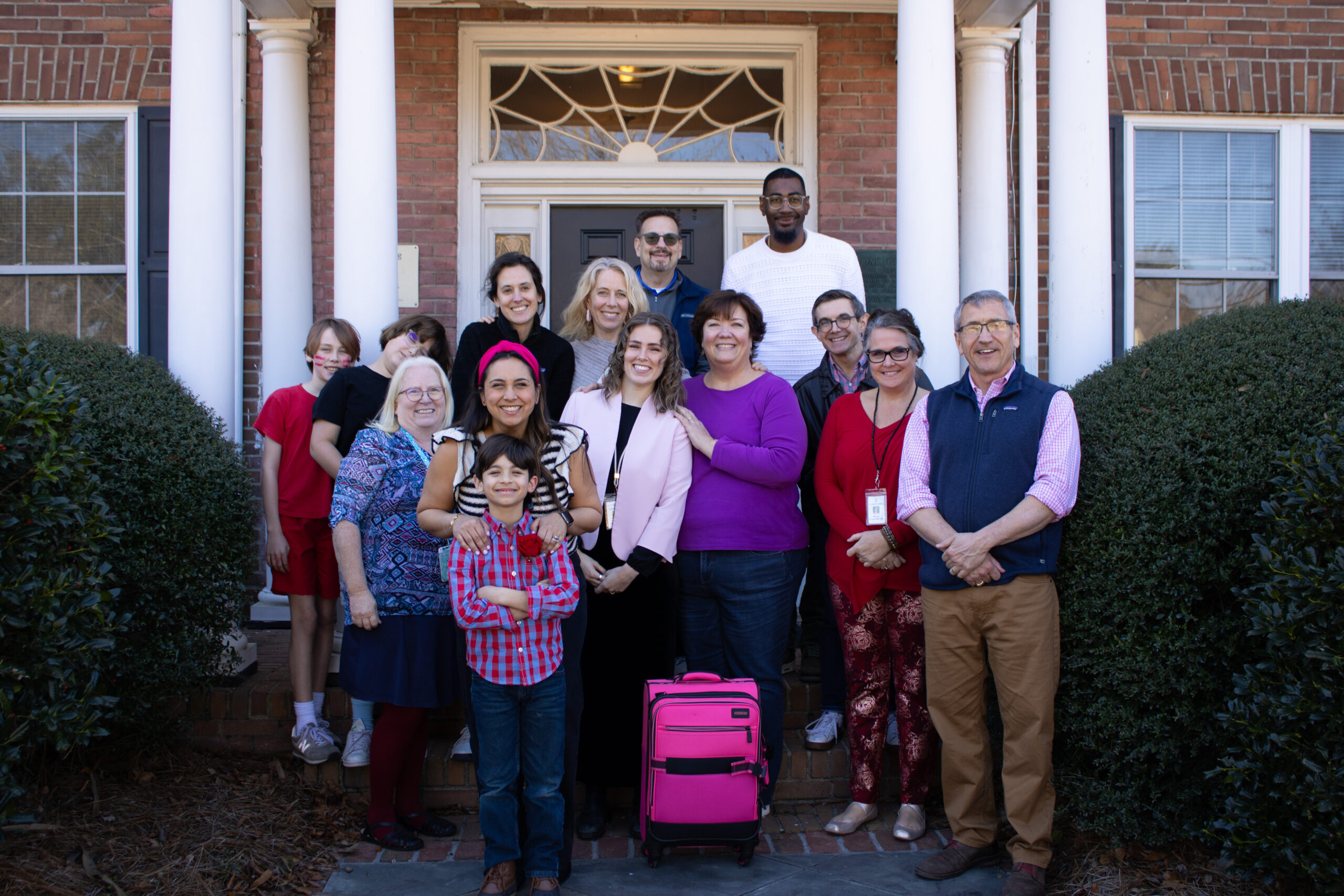Every child deserves a cozy bed, clean clothes and a hot meal. Sadly, these should-be necessities are not promised for the nearly 4.2 million American youth and young adults experiencing homelessness each year. At Carolina Youth Development Center (CYDC), we are committed to providing youth in our community with the shelter, support and resources needed to fulfill their potential and build healthy futures.
NOTE: As of Feb. 29, 2024, Carolina Youth Development Center (CYDC) has rebranded to Landmarks for Families. Our nonprofit, community programs and residential services remain committed to cultivating thriving youth and families in this new chapter.
How Transitional Housing Builds Stable Futures
Transitional housing plays an essential role in providing safety and stability. Equipped with the following benefits, youths experiencing homelessness can break free from this cycle and discover their path.
1. Safe and Stable Housing
Transitional housing provides a vital safety net for homeless youth by ensuring stable and safe accommodations. This type of housing typically offers an independent living space within a supportive environment. This stability is foundational for addressing other areas of their lives, such as education, employment and overall well-being.
CYDC’s transitional housing locations throughout the Lowcountry include Callen-Lacey Center for Children (Berkeley County) and residential group homes and NuHouse at our North Charleston Campus.
2. Supportive Services
Transitional housing programs are not just about providing a bed for the night. They offer comprehensive supportive services tailored to each youth’s unique needs. Social workers, counselors and mentors traditionally work closely with youth to set goals, create individualized plans and connect them with the necessary resources for personal growth.
3. Skill Development
Transitional housing also goes beyond addressing immediate needs like food and shelter. These programs promote self-sufficiency and self-reliance via essential skills such as budgeting, cooking, communication and problem-solving.
Life skills are vital for a safe and long-term transition to independence. The unique and supportive nature of transitional housing programs provides a structured environment where youth can practice and refine these skills under the guidance of caring professionals.
4. Education and Career Support
Education is often disrupted for youth experiencing homelessness. In America, about 87% of these young people will drop out of school before earning their high school degree – a critical asset for many employers. Transitional housing recognizes the importance of education in breaking the cycle of homelessness.
These programs provide educational support, including tutoring, access to GED programs and help with college applications and scholarships. Additionally, these programs assist youth in exploring career options, building resumes and preparing for job interviews, providing a path toward economic stability and self-sufficiency.
5. Emotional and Social Well-Being
The experience of homelessness can take a toll on a youth’s emotional and social well-being. Many youths in transitional housing have experienced trauma, abuse or neglect. These programs offer a safe space for healing and personal growth. Through therapy, support groups and mentorship, youth can address their emotional needs, build resilience and develop healthy coping mechanisms while connecting with peers who share similar experiences, fostering a sense of belonging and support.
South Carolina Youths Can Rely On CDC
With more than 200 years of experience supporting South Carolina’s youth and families, Carolina Youth Development Center is equipped to lead your child or family through life’s challenges. Whether on-site or in-home, our compassionate team is ready to meet you where you need with the services you need. Contact us today to learn more about our programs and speak with a member of our team.


